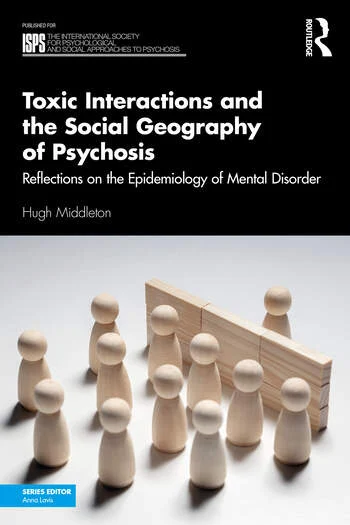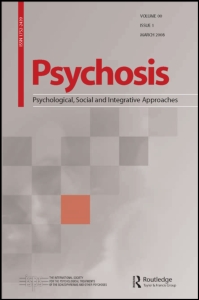Report from the 3rd Annual ‘Making Sense of Psychosis’ conference
September 7, 2012 2012-09-07 17:42Report from the 3rd Annual ‘Making Sense of Psychosis’ conference
Auckland University Conference Centre, New Zealand, October 18th and 19th 2005.
This year’s MSOP conference was marked by a prevailing sense of hope and optimism. For some this hope was about the increasingly significant role of psychology in the treatment of severe mental illness. For others it was about developing hope in our clients and seeing the positive aspects that might be found in the journey through psychosis. For others still it was about reminding us that although we have a long way to go in developing accessible, respectful and effective treatments, our coming together to share and collaborate was a positive and significant step forward. These themes were reflected in the diverse range of presentations.
In his keynote address, Dr Colin Ross, a psychiatrist working at his own Institute for Psychological Trauma in Texas, argued a strong case against the prevailing theory in psychiatry that most, if not all, cases of schizophrenia have a genetic aetiology. He proposed instead that for many individuals schizophrenic symptoms can be viewed as an understandable reaction to psychological trauma and are therefore treatable with psychotherapy.
Surprisingly, in contrast to his workshop presentation the day before, in which he heavily criticised the utility of diagnostic systems such as the DSM and ICD, Dr Ross proposed a theory of a dissociative subtype of schizophrenia, characterised by dissociative symptoms, auditory hallucinations, severe chronic psychological trauma, and extensive comorbidity.
The second keynote address was presented by Debra Lampshire. Debra shared her personal recovery journey from psychosis to the reclamation of the status of personhood. She emphasised the importance of self-determination in recovery, and discussed the challenges involved in developing the experienced-based expert role in a clinical setting.
The focus on consumer-led initiatives in mental health extended to several other presentations. Gary Platz talked about consumer leadership and working beyond tokenism in Mental Health Services. Jim Burdett outlined the role of peer support in theory and practice, describing the formalisation of the process in which people with experience of mental illness support one another.
Mary O’Hagan explained how she used intuition and creativity to understand her encounter with madness and challenged the notion that all causes and effects of psychosis are negative. Through art and poetic prose she showed us how, “Madness does not just extinguish me, it also renews me.”
Mike Ang gave a moving account of his own journey through psychiatry training and practice. Those who have worked with him know Mike to be a warm and compassionate person, but in his presentation he challenged us to see him not as a healer who should be forgiven his psychiatric training, but as a psychiatrist who, like many others, has something unique to offer psychosis, by virtue of his training.
A diversity of cultural perspectives was presented, challenging the way we think about the causes and effects of psychosis on individuals, families and societies. Chaykham Choummanivong discussed some of the issues involved in working with a Laotian teenager and Ingo Lambrecht ventured an insight into shamanic practices in South Africa and the use of hallucinogens in healing. Te Kani Kingi and Susan Tawhai presented the historical journey of Tangata Whaiora Maori and Kaupapa Maori services, and Melissa Taitimu shared with us some findings from her research investigating Maori constructions of Schizophrenia.
The participation at the conference of David Chaplow from the Ministry of Health, Derek Wright, Regional Director of Mental Health Services, and Mary O’Hagan from the Mental Health Commission, demonstrated that the New Zealand Health System acknowledges the importance of psychological understandings and interventions for psychosis.
Finally, last year’s conference saw the establishment of the New Zealand branch of ISPS. This year saw its first AGM and the election of members to the Executive Committee. Of the fourteen people who stood for election, the following nine were elected: Jim Burdett and Mary O’Hagan (service users), Susan Tawhai (service user and Maori representative), Jim Geekie and John Read (psychologists), Helen Hamer (nurse), Mike Ang (psychiatrist), Patte Randal (medical officer), and Dale Rook (occupational therapist). The committee plans to co-opt Mike Trott (psychotherapist), who received the tenth highest number of votes, to ensure representation from this important group.
Overall, this year’s Making Sense of Psychosis was as focussed as it was diverse. All participants were clear in their desire to effect positive change for individuals and for services, and there were many views about how this might be done. Challenges were put forward by mental health consumers, affected family members, Maori clinicians, psychotherapists, psychologists, and psychiatrists, all seeking to have their voice heard, and all feeling safe and supported in speaking up. While there are no magic solutions, the coming together, the discussion, and the collaboration that permeated this conference were certainly a source of hope and optimism about the future of helpful and effective services for psychosis in New Zealand.
By Vanessa Beavan, PhD student, The University of Auckland.



